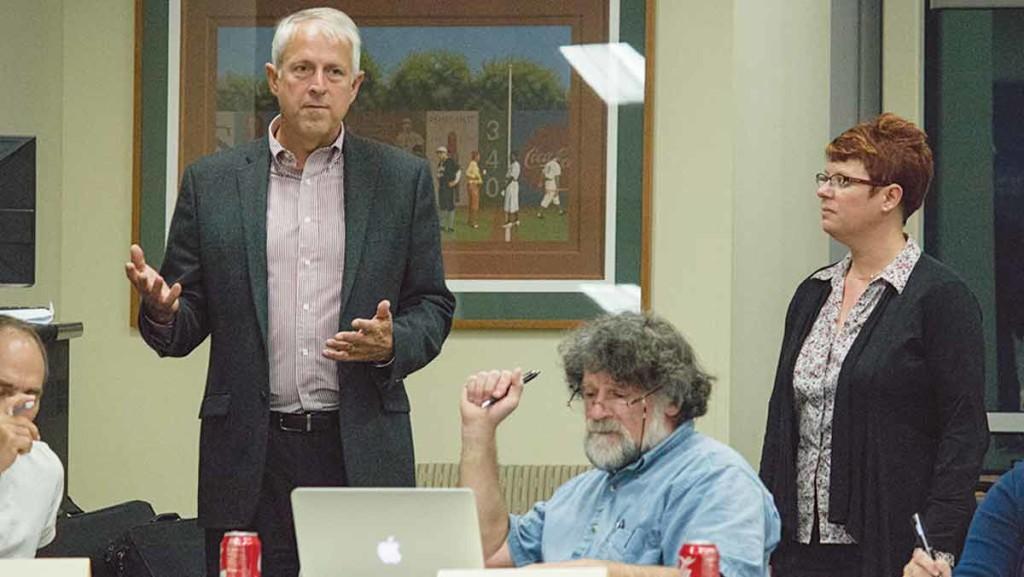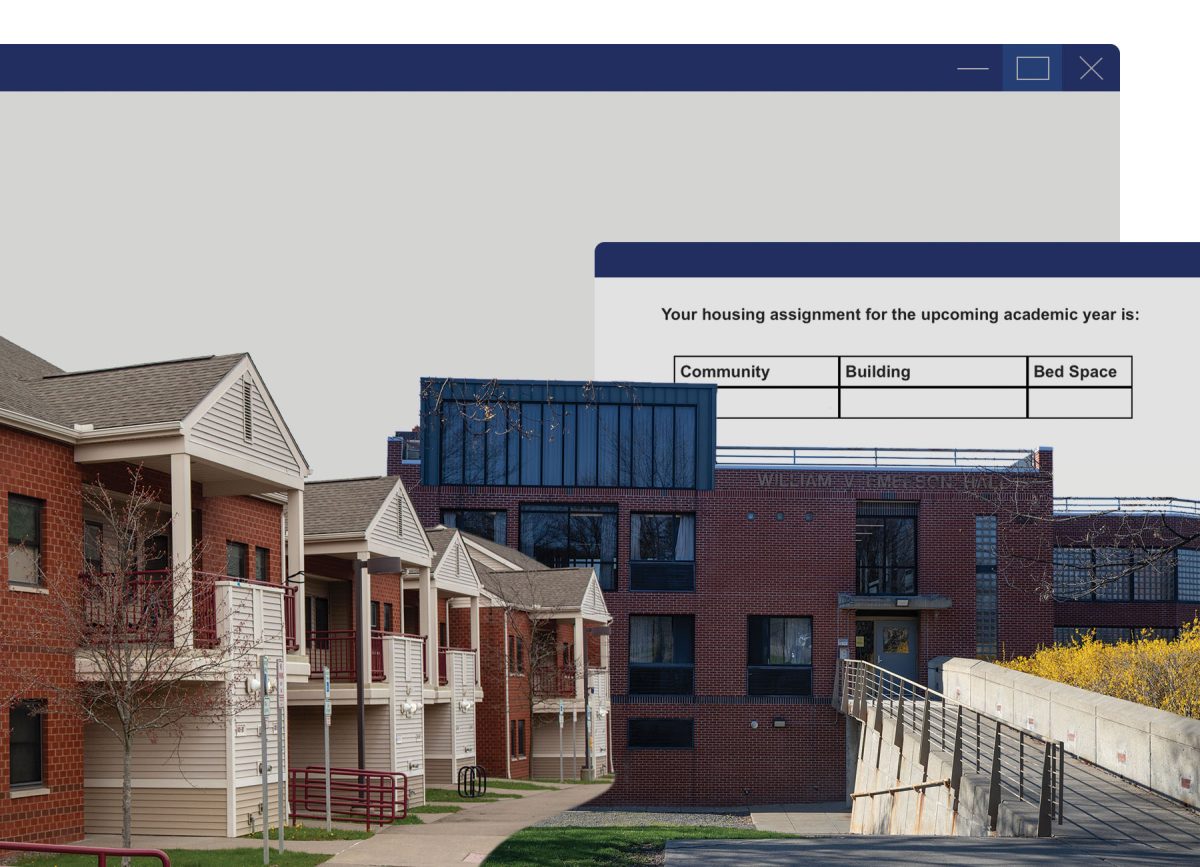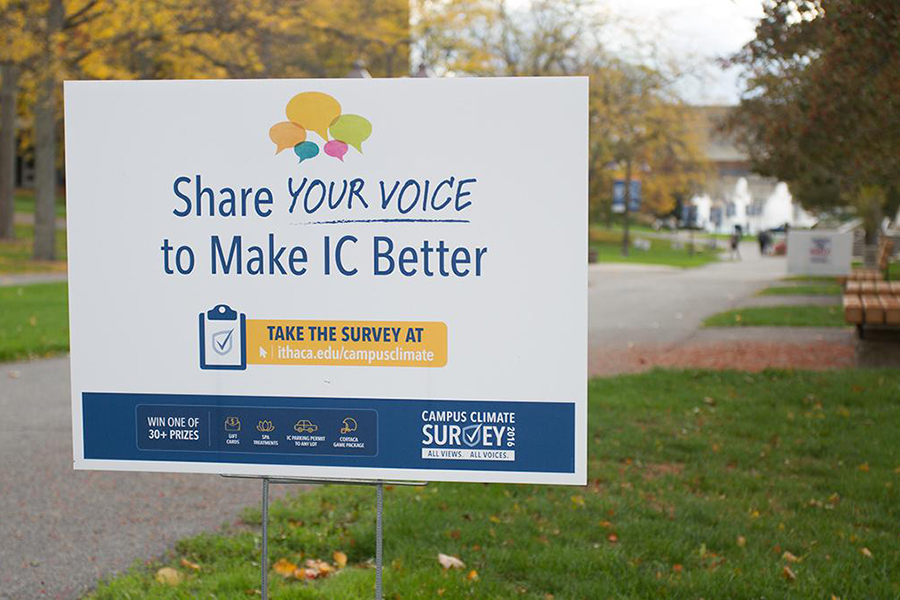The Office of Marketing Communications is undergoing a shift in strategy from a client-based model to a model that focuses on the whole of the Ithaca College brand. At the Oct. 6 Faculty Council meeting, faculty voiced worries about the new system.
The department will now be called the Office of Strategic Marketing and Communications, and it is changing its strategy to market the college from a case-by-case model to a model that focuses on enrollment, advancement and top college priorities as defined by the president, deans, vice presidents, faculty and staff, said Chris Biehn, vice president of the Division of Institutional Advancement and Communication.
Biehn said the new system would implement a governance structure to decide marketing priorities. He said the old client-based model was not efficient because the office could not take on the number of projects that were requested.
“The hope is that people will eventually be thoughtful about … what we actually need to produce in order to have [a] successful program,” Biehn said. He said he thinks the new model will also help the college cut down on unnecessary costs.
Biehn said he wants the office to stop taking on projects like making brochures for individual programs, and instead define projects by how they affect the college’s enrollment, institutional advancement and the highest priorities for the college.
Individual programs will now be responsible for marketing their own projects and events, with toolkits and templates provided by the office online, Biehn said.
Currently, the office has placed a freeze on all department projects that do not align with the shift in marketing strategy in hopes that those client-based projects will be able to be conducted through the online templates and toolkits.
Multiple faculty members expressed concern that this new system is advertising too much of the “generic” college experience, rather than specific programs, and that faculty will have to pick up the work that the office is leaving for them to do.
David Turkon, associate professor and chair of the Department of Anthropology, said he wants to see the advertisement of individual programs strengthened, rather than to see the marketing focus shift to the whole college.
“When do we go back to strengthening the programs that we can sell?” Turkon asked Biehn.
Fae Dremock, assistant professor of the Department of Environmental Studies and Sciences, said she thinks this strategy would make the college more uniform, compared to the current strategy of marketing individual programs, which adds personality to the school.
Diane Long, associate professor and chair of the Department of Occupational Therapy, said she was concerned about faculty having more responsibilities and not the skills to market their own programs with the toolkits the office is providing.
“I don’t have the skills … so it’s terrifying. And I don’t have the time,” Long said.
In response to the skepticism about the toolkits the office is offering, Bonny Griffith, interim associate vice president of strategic marketing communications, said the office will help faculty with top-level material.
These templates are now available on the Office of Strategic Marketing and Communications website along with available tech support for faculty and staff looking for help on how to use the software.
Deborah Rifkin, an associate professor in the Department of Music Theory, History, and Composition, supported the changes. She said she wants the office to focus on how to strengthen the brand of the college due to the competitive climate in higher education.
The marketing and communications webpage and the college website as a whole will also undergo a revamp. Biehn described the changes as a redesign around the college’s ability to engage potential students and the college’s brand.
Biehn and Griffith said the office is smaller than it has been, and their plan is to get it smaller to be more efficient, although they do not know specifically how this will happen. The office has chosen not to fill two marketing director positions that were filled last year because they are not needed, Biehn said. He also said the office will adjust accordingly for positions that are needed.
“This is a huge change for the campus community, but an important one, for where we’re going,” Biehn said.







